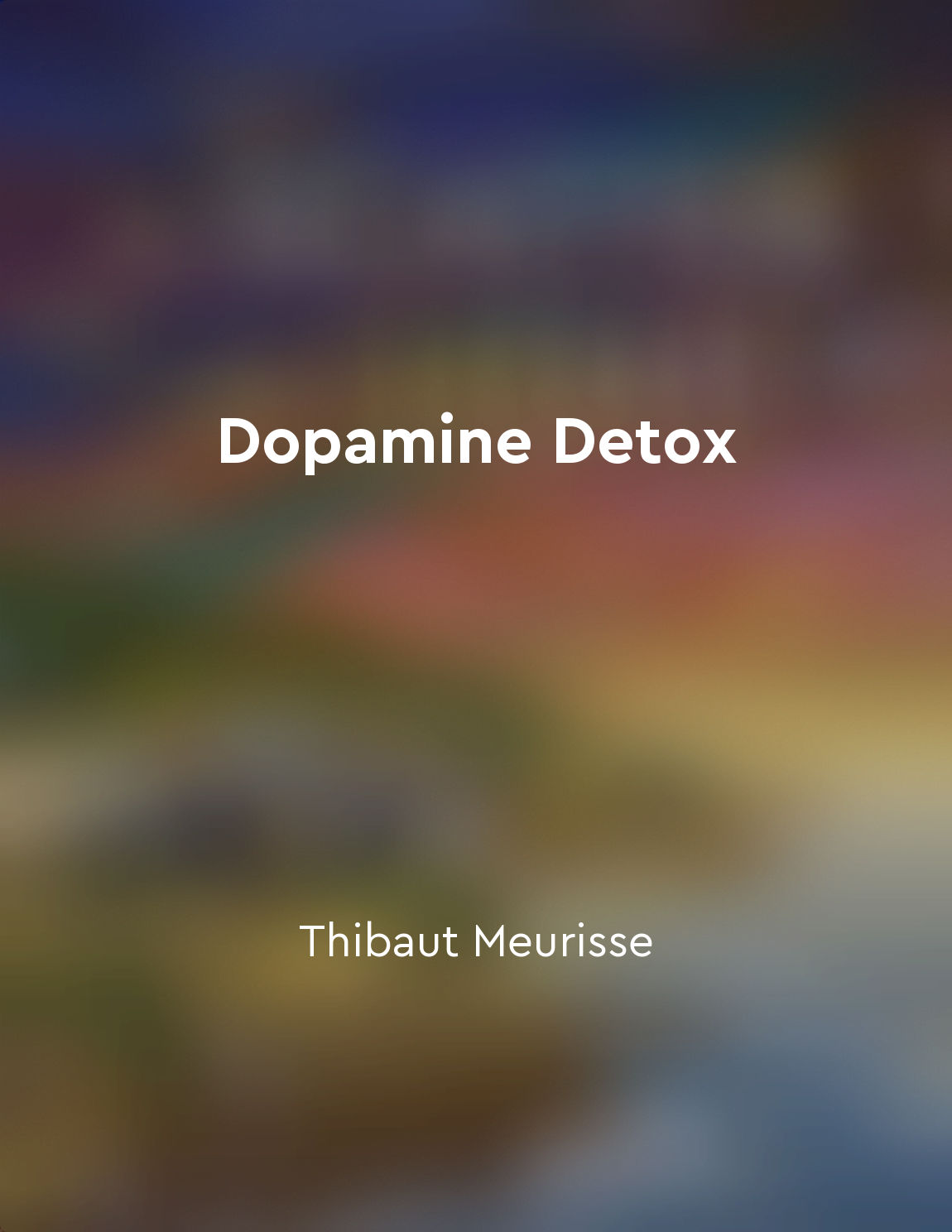Audio available in app
Dopamine dysregulation can cause depression from "summary" of Dopamine Nation by Dr. Anna Lembke
Dr. Anna Lembke explores the intricate relationship between dopamine dysregulation and depression in her book "Dopamine Nation." She delves into how the excessive consumption of stimulating substances and activities can disrupt the delicate balance of dopamine in our brains, leading to a host of mental health issues, including depression. Lembke explains that dopamine is a neurotransmitter associated with pleasure, reward, and motivation. When we engage in activities that trigger a dopamine release, such as using social media, shopping, or consuming drugs or alcohol, our brains become flooded with this feel-good chemical. Over time, this can desensitize our dopamine receptors, leading to a diminished response to natural rewards and an increased craving f...Similar Posts
Brain generates mental images
The brain is a remarkable organ that is responsible for generating mental images. When we see, hear, smell, taste, or touch som...
Vitamin and mineral supplements can support brain function
One important way to support brain function is through the use of vitamin and mineral supplements. Certain vitamins and mineral...

Experiment with different relaxation techniques to find what works best for you
When it comes to finding the most effective relaxation techniques for yourself, it's crucial to remember that what works for on...

Insight emerges from relaxation
When we are fully relaxed, our brain is able to make connections between seemingly unrelated pieces of information. This is bec...

Seeking social support can aid in overcoming negative thoughts
When negative thoughts start to weigh you down, one effective strategy to counter them is seeking social support. Talking to so...
Desire drives humans to seek out sexual encounters
The desire for sexual encounters is a powerful force that drives humans to seek out connection with others. From an evolutionar...
Habits are not fixed and can be modified over time
Habits are not fixed and can be modified over time. This is a key concept that Charles Duhigg explores in "The Power of Habit."...
Addiction is not a moral failing but a medical condition
Judith Grisel makes a compelling argument that addiction should not be viewed as a moral failing but rather as a medical condit...
Psychological wellbeing contributes to happiness
In understanding what contributes to happiness, it is important to consider the role of psychological wellbeing. Psychological ...

Coping mechanisms for stress vary among individuals
When it comes to stress, no two individuals are alike in how they cope with it. What works for one person may not work for anot...
